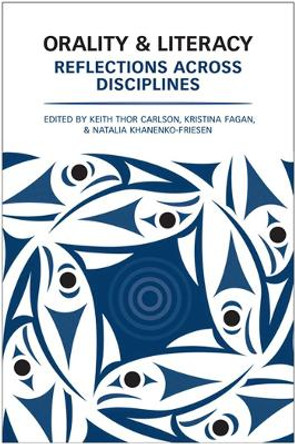Description
The Indigenous communities of the Lower Fraser River, British Columbia (a group commonly called the Sto:lo), have historical memories and senses of identity deriving from events, cultural practices, and kinship bonds that had been continuously adapting long before a non-Native visited the area directly. In The Power of Place, the Problem of Time, Keith Thor Carlson re-thinks the history of Native-newcomer relations from the unique perspective of a classically trained historian who has spent nearly two decades living, working, and talking with the Sto:lo peoples.
Sto:lo actions and reactions during colonialism were rooted in their pre-colonial experiences and customs, which coloured their responses to events such as smallpox outbreaks or the gold rush. Profiling tensions of gender and class within the community, Carlson emphasizes the elasticity of collective identity. A rich and complex history, The Power of Place, the Problem of Time looks to both the internal and the external factors which shaped a society during a time of great change and its implications extend far beyond the study region.
'Keith Thor Carlson has tackled an immensely complicated topic with grace, humility, and compassion. The Power of Place, the Problem of Time offers readers an opportunity to understand First Nations peoples as something more than stock, static figures who either disappeared or got frozen in time. He uncovers and explains the complexities of social relations, cultural change, and historical meanings of identities-political and cultural-that will stand as a guide for any wanting to consider the topic in the next century.' -- Chris Friday, Center for Pacific Northwest Studies, Western Washington University 'In this strikingly original book, Keith Thor Carlson offers a fascinating account of the changing identities of the Sto:lo as they responded to smallpox, the fur trade, a gold rush, missionaries, settlers, and colonial land policies. He shows that different segments of pre-contact Sto:lo communities constructed layered identities for use within the various levels of their society, and that during the tumultuous years between 1780 and 1906, individuals drew, as need be, on these diverging constructions. Drastic change was not new to the Sto:lo people; they had renegotiated their identities before and did so again.' -- Cole Harris, Department of Geography, University of British Columbia, and author of Making Native Space and The Reluctant Land
About the Author
Keith Thor Carlson is a professor of History at the University of the Fraser Valley where he holds a Tier One Canada Research Chair in Indigenous and Community-Engaged History.
Reviews
'Carlson's work represents an innovative avenue towards the further decolonizing of Aboriginal history, and this, combined with his concern for contemporary Aboriginal political issues, heightens the relevancy of the book and marks his claims as being significant both in and beyond the academy.' -- Madeline Knickerbocker * BC Studies no. 172, winter 2011-2012 *
'Keith Carlson offers something unique to readers by showing us how productive ethnohistorical analysis can be to the cross-cultural understanding of Indigenous peoples under colonialism.' -- Susan Neylan * Canadian Journal of History, vol 47 Spring-Summer 2012 *
Awards
Winner of Aboriginal History Book Prize awarded by Canadian Historical Association 2011 (Canada) and Clio Prize - British Columbia awarded by Canadian Historical Association 2011 (Canada). Short-listed for Saskatchewan Book Award for Scholarly Writing 2012 (Canada).
Book Information
ISBN 9780802095640
Author Keith Thor Carlson
Format Paperback
Page Count 368
Imprint University of Toronto Press
Publisher University of Toronto Press
Weight(grams) 580g
Dimensions(mm) 229mm * 152mm * 28mm









